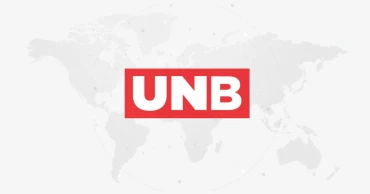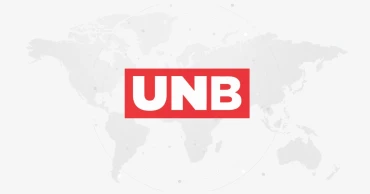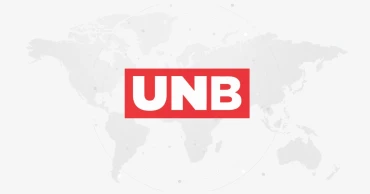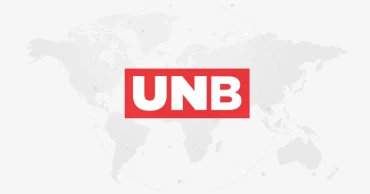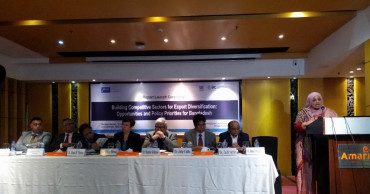PRI
Bangladesh sees highest LC openings in almost 2 years in May: Here’s why
Bangladesh witnessed its highest Letter of Credit (LC) openings in 23 months, amounting to US $6.83 billion in May 2024, amid an ongoing foreign exchange crisis, according to Bangladesh Bank.
Previously, the highest LC opening was recorded in June 2022, reaching $7.02 billion. Since then, fluctuating dollar exchange rates and the domestic currency, the taka, have generally led to a decreasing trend in LC openings.
In April 2024, LCs worth $5.68 billion were opened. The figures for May show a significant increase of more than 20 percent compared to April. Compared to the same period in 2023, LC openings in May rose by 19.5 percent.
What to Consider Before Taking a Personal Loan from a Bangladeshi Bank
Economists and market analysts attribute this trend to several factors, including tax benefits at the end of FY 2023-24 and the anticipation of the withdrawal of tax exemptions on various products in the FY 2024-25 budget.
Dr. Ahsan H Mansur, Executive Director of the Policy Research Institute (PRI), explained to UNB that the increase in LC openings in May was influenced by a more lenient import policy on some items towards the fiscal year's end.
Additionally, traders rushed to open LCs fearing further increases in dollar exchange rates after the central bank raised the rate by Tk 7 in a single move on May 8, 2024, he added.
Trade analyst Dr. M. Mashrur Reaz noted that the increase in LC openings after a long period was also due to an improved dollar supply, thanks to remittances and foreign loan disbursements.
Bangladesh needs green growth to achieve its vision of upper middle-income country by 2031: WB
Despite ongoing macroeconomic instability in Bangladesh, trade volume and business transactions have increased in recent months. Government policy support on capital imports also impacted LC openings, Dr. Reaz observed.
Furthermore, the announcement of new taxes on capital machinery imports in the FY 2024-25 contributed to the spike in LC openings. Capital machinery imports were tax-free until now, Dr. Reaz pointed out.
1 year ago
Political instability always causes economic uncertainty: Ahsan Mansur
Eminent economist Dr Ahsan H. Mansur has said that political instability or uncertainty always affects the economy adversely.
Dr Mansur, executive director of the Policy Research Institute (PRI), a Dhaka-based think tank, was talking to UNB on the ongoing political situation centred on the 12th national election and the opposition's hartal-blockade programs.
“Bangladesh's macroeconomy is facing challenges not seen in the last 25/30 years, so tackling the grave situation politically is very important,” he said.
The political unrest alongside the macroeconomic instability is a double blow for the domestic economy, so the current domestic situation is different from any other election period in the history of Bangladesh, Dr Mansur pointed out.
Read: Blockades are bad for economy, scare foreign investors: FBCCI President
He said, “If the national election is not credible to the international and domestic people, the concern will grow over what steps and reaction come from western countries, which is the export destination of most Bangladeshi products.”
Meanwhile, the foreign countries have expressed concern over a decent working environment for labour, security of labour organisations' leaders, and desired wages in the export-oriented garment industries, he said.
Bangladesh's human rights record was reviewed for the fourth time under the Universal Periodic Review (UPR), an important UN human rights mechanism. Bangladesh's human rights record is under the scrutiny of the UN, EU, and USA, in this case, the steps for a political resolution and securing labour rights are very crucial, he opined.
Regarding releasing the second instalment of the IMF’s USD $4.70 billion loan, Dr. Mansur, who is also a former senior economist of the IMF, said that there is no reason to delay the second instalment of the loan as Bangladesh met most of the conditions set by the global lender.
Read: Economy bears brunt of ongoing blockades and hartals ahead of polls: Dr Atiur Rahman
He said double-digit inflation has been prevailing in Bangladesh for a long time, while the South Asian countries including Sri Lank had succeeded in controlling inflation. In this area, Bangladesh has to do more to reduce the inflation rate to 4-5 percent.
He focused on a market-based foreign exchange rate to make the exchange rate sustainable instead of being controlled by the Bangladesh Bank or Bangladesh Foreign Exchange Dealers Association (BAFEDA).
Dr. Masur suggested policy reform and effective measures to stop money laundering or capital flight for a sustainable domestic foreign exchange market, in that the central banks have to apply their regulatory authority without bias or influence.
“Despite a huge workforce and advantage of geographical location, Bangladesh cannot attract big volume foreign direct investment (FDI) due to lack of policy reforms and weak regulatory authority. Political unrest will work as another barrier for FDI,” he pointed out.
Read: An innovation leap: Nagad Digital Bank aims to extend reach to the unbanked and underbanked
Regarding political resolution, he said that there is no alternative to dialogue amongst major political parties, and tolerance of opposition for those who are in strong positions or in power is very important.
Dr Mansur said all parties' participation in the upcoming election is the best option for Bangladesh in consideration of the overall current situation, while dialogue and level playing field for political parties are important issues.
He thinks that the situation is not normal, as what is happening in Bangladesh is being keenly watched around the world, so the authorities must proceed with reason.
2 years ago
Why inflation persists at a higher level in Bangladesh
Inflation continues to persist at a high level in Bangladesh, affecting the lifestyles of common people severely as they struggle to survive on limited earnings in the aftermath of the Covid-19 pandemic.
Figures released on Sunday showed general inflation remained virtually unchanged at 9.69 percent on a point-to-point basis for the month of July, having been 9.74 percent in June, said the Bangladesh Bureau of Statistics (BBS).
The Ministry of Finance and Bangladesh Bank (BB) have blamed the external factors for inflation while they failed to adopt the right fiscal and monetary policy measures, said economists.
Read: General inflation virtually unchanged at 9.69 percent in July
Talking with UNB former governor of the Bangladesh Bank Dr Atiur Rahman said Bangladesh could not go for adequate tightening of the monetary policy in time to rein in inflation while the US Federal Reserve continues to raise policy rates persistently.
He said, the Reserve Bank of India (RBI) has also been raising policy rates consistently, while agriculture production rising consistently to strengthen the supply side. The market imperfections caused by growth curtail the root cause of higher food inflation and other necessities.
The depreciation of the Taka had also been raising imported inflation at these times. The rent-seeking on the roads by some quarters besides higher transport prices due to readjusted fuel prices may have also been fuelling inflation from the supply side, Dr Atiur said.
Read: Bangladesh Bank working to normalise inflation and dollar crisis despite geopolitical challenges
He suggested the ways out may be to further tighten monetary policy and reduce public expenditure to reduce public borrowing from the central bank to align fiscal policy along with tighter monetary policy.
The competition commission and Consumer Protection Authority must wake up to break the curtails. The roads should also be made rent-free to facilitate smooth flows of goods and daily necessities.
The exchange rate must be stabilized at a single rate and hurdles for small entrepreneurs in opening letters of credit with adequate dollar support could ensure smooth supplies of imported goods for consumption and raw materials for continued production of goods and services could also help stabilize the prices of the same.
Read: Ex-governors optimistic MPS can claw back inflation, implementation the key
The regulators should keep on communicating well in anchoring the inflation expectations so that inflation does not get embedded in consumer psychology.
Dr Zahid Hussain, the former lead economist of the World Bank's Dhaka office, told UNB that no measure has been taken to rein the inflation so far.
He said the reigning repo rate is not affecting the market, and the increase of 1.0 percent in interest rate from July is not making any impact on the money market.
He pointed out that printing currency to meet government expenditures is also fuelling inflation.
Read: CPD dismisses budget's projections on growth, inflation, revenue collection
Dr Zahid said there is no control over pricing of essentials products in the market, and businesses are making hefty profits showing supply-side uncertainty in the wake of the foreign exchange crisis.
Dr Ahsan H Mansur, former economist of IMF and executive director of Policy Research Institute (PRI), told UNB that the BB printed more currency (taka) in a single year than it had in the last 50 years, which brought additional inflationary pressure.
Denying the BB claim of printing money as a regular matter that has no impact on inflation, Mansur said printing money against the US dollar, which commercial banks sold to the central bank is a different issue.
Explaining the situation, Dr Mansur said despite the dollar crisis, the printing of high-speed money (printing currency) is continuing, which obviously brings impact on higher inflation, resulting in Bangladesh’s inflation rising while Sri Lanka and other Asian countries’ inflation is falling.
2 years ago
All export-oriented industries should get equal facilities: Salman F Rahman
Salman F. Rahman, adviser on the private sector to the Prime Minister and one of the country's leading businessmen, has said all export-oriented industries should get similar facilities to meet the objective of export diversification.
Salman, also a first-time MP, was speaking as the chief guest at a webinar organized by the think-tank Policy Research Institute (PRI) on improving export trade facilities.
The Prime Minister's private industry and investment adviser admitted that there is a problem with bureaucracy. Although the bureaucratic mentality in the administration has changed at the highest level, at the ground level it still remains the same. Every export-oriented sector can be improved if the bureaucratic complexities are reformed, he said.
Read: Austerity reducing imports to $6 billion a month: Salman F. Rahman
“I always say that everything was confined to high-level bureaucracy earlier. But now the problem has been reduced. There is a positive mental change at the highest levels of the bureaucracy. However, problems remain at the lower level and field level,” said Salman.
The National Board of Revenue (NBR) and Commerce Ministry are working on these challenges to improve the business environment, he said.
"We have to change the mindset of the bureaucracy at the field level. We all have to think about the geopolitical situation, how it is affecting the supply chain,” he added.
Read Uniform rate: Tk 108/dollar max for remittance, Tk 99/dollar for export income from tomorrow
Salman also focused on increasing the capacity of ports for increasing export opportunities.
He said, “The capacity of Chittagong Port will be further increased. It is being worked on. Work is underway on the proposed deep sea port in the Matarbari area of Cox's Bazar district. It will be constructed as a full-fledged commercial port by expanding the coal-carrying jetty.”
Once these are done, exports can be further increased, he said.
State Minister for Planning Shamsul Alam also participated in the webinar. PRI Executive Director Ahsan H. Mansur, Chairman Dr Zaidi Sattar, Policy Exchange Chairman Dr M Masrur Riaz, IFC Manager Selma Rasavac, NBR Member (Customs Audit) Dr Abdul Mannan Sikder, Additional commerce secretary Hafizur Rahman, former president of BKMEA Fazlul Haque, CEO of Standard Chartered Bank Enamul Hoque, Country Manager of IFC Martin Holtmann among others, also joined the program.
Read Govt served legal notice to ban Hilsa export to India in 7 days
3 years ago
MCCI-PRI for raising EDF to $10 billion to achieve $80 billion export target
To achieve the $80 billion export target of the government for the fiscal year (FY) 2023-24, the export development fund (EDF) should be raised to at least $10 billion and made accessible to all exporters, Metropolitan Chamber of Commerce and Industry (MCCI) President Md Saiful Islam said Monday.
As per the Export Policy 2021-2024, the export target is $80 billion for FY24, yet the current EDF is only $7.5 billion, he added.
Saiful was addressing the MCCI-Policy Research Institute (PRI) post-budget discussion "Bangladesh from Vulnerability to Resilience and Rapid Inclusive Development" in the capital.
Read: Reliable accreditation infrastructure crucial for strengthening export
Planning Minister MA Mannan was the chief guest at the event, Dr Shamsul Alam, state minister for planning, and Dr Zaidi Sattar, chairman of PRI, were special guests.
"Many areas in the proposed budget for FY23 have a lot of room for improvement as far as the business community's needs are concerned. The allocation of social safety nets is one such area," he noted.
There has been an increase in the allocation from Tk107,614 crore in FY22 to Tk113,576 crore considering the twin blows of the Russia-Ukraine war and the pandemic.
Read: Govt urged to provide policy support to plastic toy industry for its export-earning potential
"Also, natural disasters such as floods, which we are going through right now, will also be another challenge for the country," Saiful said.
"So, we are suggesting increasing the social safety net budget from the current level to a reasonable amount."
"Also, the personal income tax thresholds have remained unaddressed, which we thought should have been subject to changes, especially the tax-free threshold," the MCCI president said.
Read WTO Conference: Bangladesh speaks against sudden ban on food export
"Considering the increase in per capita income to $2,824, we believe the personal income tax threshold should be increased to Tk400,000."
3 years ago
Expand domestic car market for automotive industry: Speakers
Speakers at a webinar on Wednesday said Bangladesh needs to expand its domestic car market to develop the automotive industry as the registered vehicle per capita is only 0.003 percent in the country.
5 years ago
CRI Policy Cafe: Prioritise labour-intensive small entrepreneurs while disbursing incentive
Speakers at a dialogue have said labour-intensive small entrepreneurs should be given priority during the disbursement of the Tk 20,000 crore incentive package announced by the government for the small and medium entrepreneurship.
5 years ago
DCCI, PRI sign MoU to facilitate research
Dhaka Chamber of Commerce & Industry (DCCI) and Policy Research Institute of Bangladesh (PRI) signed a Memorandum of Understanding (MoU) on Sunday to facilitate research.
6 years ago
Diversify export basket to sustain accelerated economic growth: IFC
The International Finance Corporation (IFC), a member of the World Bank Group, highlighted the need of diversifying Bangladesh’s export basket to sustain accelerated economic growth, increase investment opportunities, and create more jobs, particularly for women.
6 years ago

